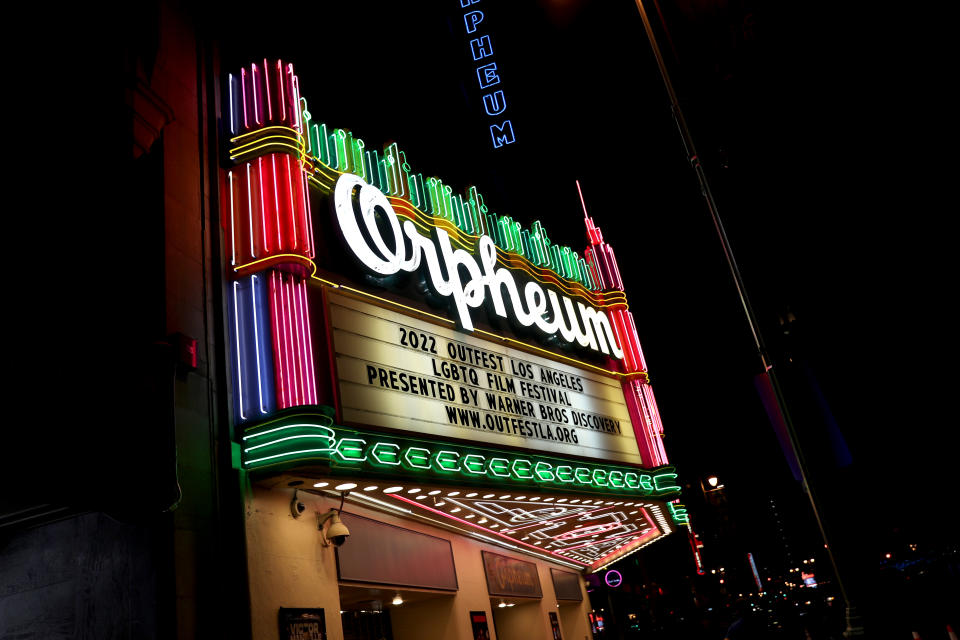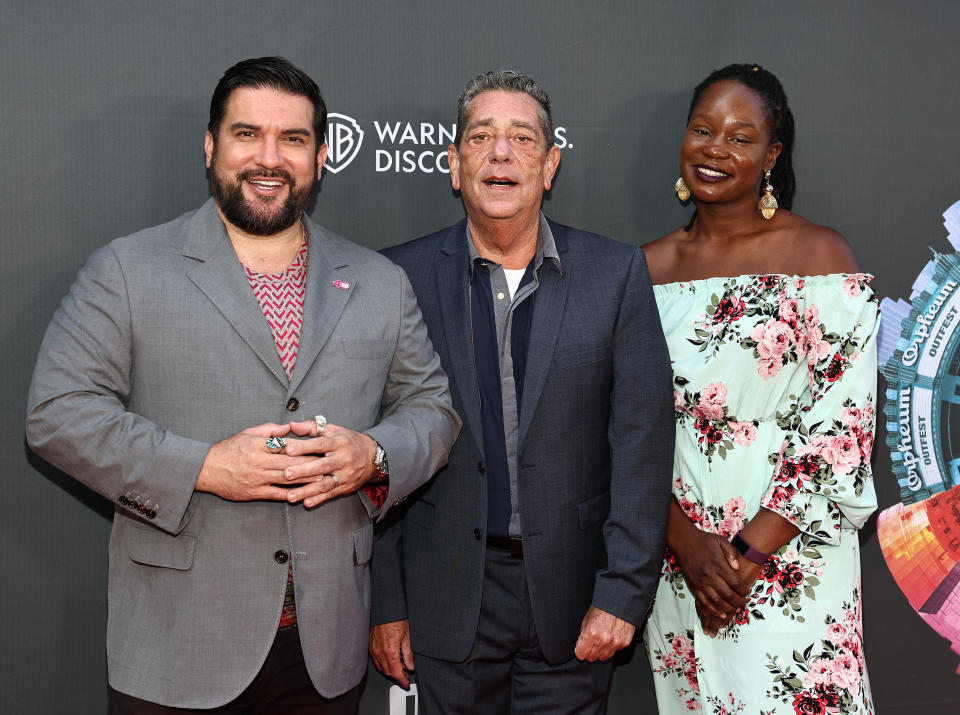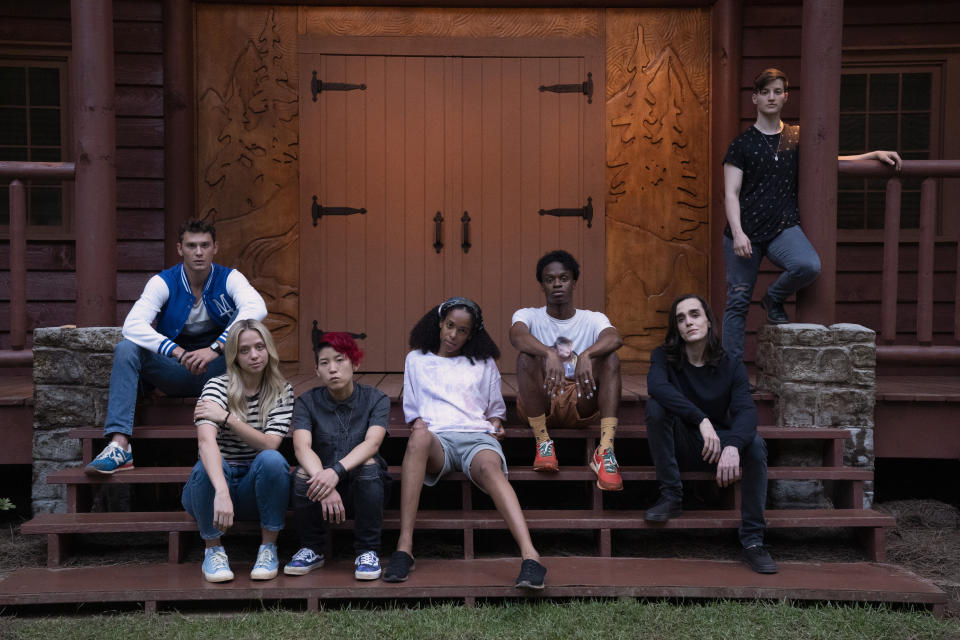Outfest at 40: Inside the Anniversary of L.A.’s LGBTQ Film Festival

In 1982 — when L.A.’s LGBTQ film festival Outfest was born, the same year that Making Love, Personal Best and Victor/Victoria were released — queer content on screen was mostly scarce and what did exist was often hard to access.
Cut to the 40th anniversary this year of Outfest, and gay content is easy to find on television, especially on streamers, while on the film front, Universal this fall will release the first studio film with an all-LGBTQ leading cast, Bros.
More from The Hollywood Reporter
But even with a highly increased amount of queer content accessible from one’s couch and at the multiplex — “We have lots of choices in entertainment. It’s not just independent film [anymore],” says Outfest executive director Damien S. Navarro — L.A.’s queer film festival continues to hold a vibrant spot in the life of Los Angeles and its LGBTQ community and is finding new ways to grow and engage with the entertainment industry.
Outfest kicked off its 40th anniversary fest on July 14 with the premiere of Billy Porter’s trans coming-of-age story Anything’s Possible. Other highlights of the fest — which runs through July 24 and will spotlight more than 200 titles and 42 world premieres — include a free two-episode screening of the new Amazon Prime series A League of Their Own (July 19); the premiere of the documentary All Man: The International Male Story (July 16); a 20th-anniversary screening of Far From Heaven with Julianne Moore attending (July 17) and the closing night film They/Them, a Blumhouse horror pic set at a conversion therapy camp.

Shutterstock for Outfest
Beyond all the in-person screenings, the 11-day festival (presented by Warner Bros. Discovery and IMDB) also includes its Trans, Nonbinary and Intersex Summit on July 23 featuring writer/activist Raquel Willis; a conversation with horror icon Clive Barker (who is receiving Outfest’s inaugural Maverick Award) on July 17; and a night of comedy at The Ford theater that includes comics Margaret Cho and River Butcher. “I like to say, you know, how do you battle when you’ve been bullied by comedy, but by comedy-ing them right back,” says Navarro, referring undoubtedly to comedy specials in the last year from Ricky Gervais and Dave Chappelle that were criticized as anti-trans.
In addition to running its summer film festival, Outfest also puts on the Outfest QTBIPOC Fusion Film Festival each spring with stories spotlighting people of color; manages the free OutMuseum streaming platform; runs a screenwriting lab; and preserves films through its Legacy Project program. (The first film preserved by Outfest was the 1986 drama Parting Glances starring Steve Buscemi.)
Back in 1982, Outfest started under a different name, the Gay and Lesbian Media Conference, launched by four graduate students at UCLA. Over the years, its leaders and programmers have included renowned photographer Catherine Opie (the first video programmer), Kim Yutani (now director of programming at Sundance) and Kirsten Schaffer (now the CEO of Women in Film). In 1987, the fest opened with Mala Noche by Gus Van Sant, who has said, “The whole basis of my career comes from this festival.” Over its four decades, honorees have included everyone from Tom Hanks and Rita Moreno to Lee Daniels, Joey Soloway and Michaela Jaé Rodriguez. In 2018, two thirds of total content shown at Outfest was by filmmakers who were trans, people of color or women.
Navarro — who joined in 2019 as executive director and the first person of color at the helm of the organization — spoke further with The Hollywood Reporter about the festival’s pandemic pivots, the role of a queer film festival in 2022 and the group’s ties to entertainment companies including Netflix.

Shutterstock for Outfest
So what was it like doing the festival during the first two years of the pandemic?
[During the pandemic], we were doing drive-ins. We were at Calamigos Ranch [in Malibu] out in the dirt in the beautiful forest. In fact, to this day, people still say it was one of their favorite experiences. Last year, opening night was at Hollywood Forever and we were back about 50 percent; we did about 50 percent virtual.
How did it go putting together this 40th anniversary festival?
As far as the programming goes, it’s all the bells and whistles that you hope for in a major anniversary year. We’re back at all of our nostalgic favorites, like The Ford and the Ace Hotel and of course the DGA — which, I will say, when I first came on board, I didn’t quite realize the magic that [the DGA] holds for so many storytellers and filmmakers to see their work highlighted there.
Looking back at the first 40 years of the festival, what are your thoughts?
You basically had four PhD students who wanted to create a conference and cover all the topics at the time that the queer community was facing as it was getting more heavily involved in entertainment. The good part is that grew into Outfest and all of its programming and all of its tentacles. The bad news is we’re still having those [same] conversations. And that was tough to stomach, like when we look at things like overturning Roe v. Wade and the anti-trans and “Don’t Say Gay” bills. You’re like, “How the hell has it been 40 years and our community, for all of the big things we have done, are still right back here, talking about inclusivity, talking about access, talking about our rights being taken away?”
Why does Outfest also run a streaming platform, OutMuseum?
It’s because of stories like this widowed man, well into his 80s in the rural South who filled out Outfest’s financial hardship form to get complimentary tickets online. It’s anonymous but we just ask for a little blurb so we can track it for grant purposes. And he said, “You know, I’ve been married to a woman. I lost my wife. I’ve been closeted my entire life. I never knew that I ever would have access to something like this festival online.”

Blumhouse
How do you see the role of an LGBTQ film festival in 2022?
We talk about our role now is to serve three distinct audiences. First, it’s audiences that are craving a different type of community experience that isn’t a bar or a nightclub. For filmmakers, they are under more duress than ever before — so it’s [about] increasing programming. And then finally for the streamers and the studios, it’s about holding them accountable and meeting with their ERGs [Employee Resource Groups] and their corporate social responsibility groups, and saying, “You can’t just do a press release anymore that you’re gonna put support toward this.” We’re happy to take that resource, and we will make sure that we are accountable for making sure it ends up in the right hands.
Can you further explain this latter point and how Outfest engages with Hollywood?
Netflix is a great example. Netflix has been in the headlines. There are obviously things from their leadership that I think all of us would say they could do a lot better. But they’ve also shown films and distributed films like Disclosure: Trans Lives on Screen, which we have many board members and members of our community that were behind. And they also announced this incredibly large artist fund in which they have publicly said, we are going to be channeling however millions of dollars it was at the time into the community in order to help solve some of these inclusive crises, representation crises. So, we see this all the time with corporations. You know, what’s happening over here may not be what’s being reflected here. We went to Netflix, who we hadn’t had support from, and pitched them on underwriting the entire screenwriting lab that is a program that has been around for many, many years. It’s great, but one of the challenges is, you get selected to be in the screenwriting lab, you get a mentor, you get to showcase one act of your films in some sort of creative way. But other than that, when we were listening to what support screenwriters really needed, it was cash to live in L.A., to go on those interviews for writing rooms, to stay long enough. They couldn’t afford it. So, starting last year, Netflix underwrote all of the submission fees for the entire thing, and then we also gave away $10,000 for two of the fellows. This year, we’re giving every fellow $5,000. And the stories we heard back from those two [2021] individuals was that they booked their first jobs. They stayed here. So that’s just one example.
Best of The Hollywood Reporter

